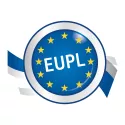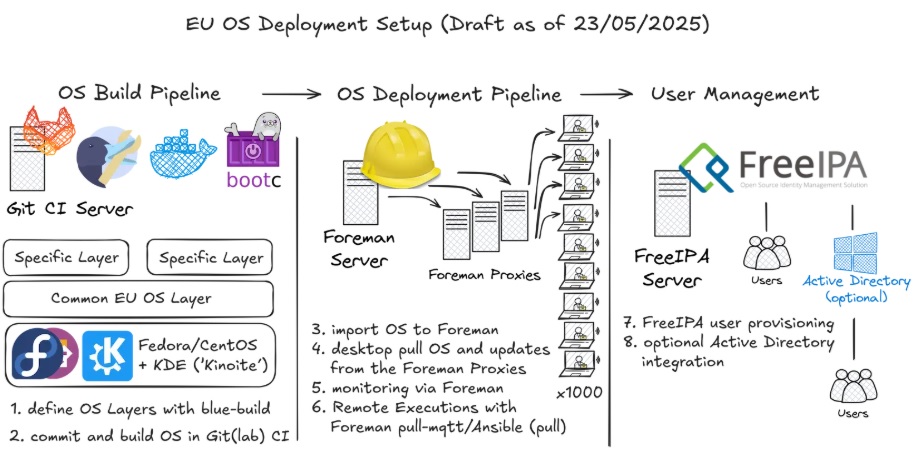
With the aim of moving towards digital sovereignty of administrations in Europe, the objective of EU OS is that organisations can mutualise the efforts of a migration from Windows and the operations afterwards.
EU OS is not (yet) a project of the European Union, but a community-led Proof-of-Concept. However, the project goal is to become a project of the European Commission in the future and to make use of https://code.europa.eu. For this EU OS is in touch with the public administration on member state and EU level. So far, EU OS relies on https://gitlab.com/eu-os.
EU OS is not the first proposal for using Linux in the public sector, since there have been notable migrations, reaching from schools to nation-wide police. However, all those projects are very much isolated from each other. EU OS is different as it proposes to use bootable container technology, which has security advantages and eases the collaboration. This is the reason why EU OS is not meant for home users, but for system administrators who want to deploy automatically the Operating System to many corporate computers/laptops (this could be applicable in both private and public sector).

A remaining (quite complex) question is the EU-OS licensing. The software kernel is based on (is a derivative of) the Fedora Linux distribution. As the GitHub software repository states (https://gitlab.com/eu-os/eu-os.gitlab.io), the website code and project resources published in the software forge are licensed under the EUROPEAN UNION PUBLIC LICENCE v. 1.2
As stated in their own docs, Fedora Linux is a compilation of software packages, each under its own licensing terms. While the historical Linux kernel is (and likely will remain) under GPLv2, software or components included in a Linux system may be under other open source licenses, such as the EUPL. According to these historical reasons Fedora Linux has always had an explicit compilation license (Since Fedora 22 the permissive MIT license). This compilation license does not supersede the licenses of code and content contained in Fedora Linux, which conform to the guidelines described at their License Approval section. This specifies a Fedora approved license list that includes the EUPL. (https://docs.fedoraproject.org/en-US/legal/allowed-licenses/), which is itself compatible with the GPL and other licences.
With respect to the notice inclusion provision of the MIT license, solely with respect to the Fedora Linux compilation license grant, Fedora does not regard non-Fedora-branded downstream derivative distributions (like the EU/OS branding) as being "copies or substantial portions of the Software."
More information on: https://eu-os.eu/
Referenced solution


